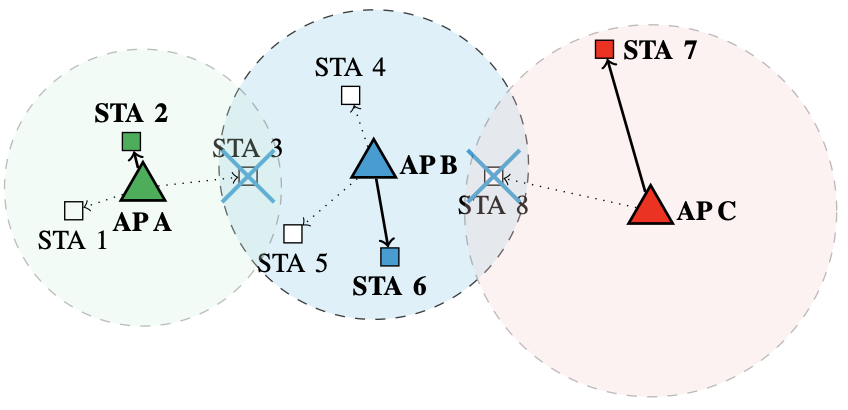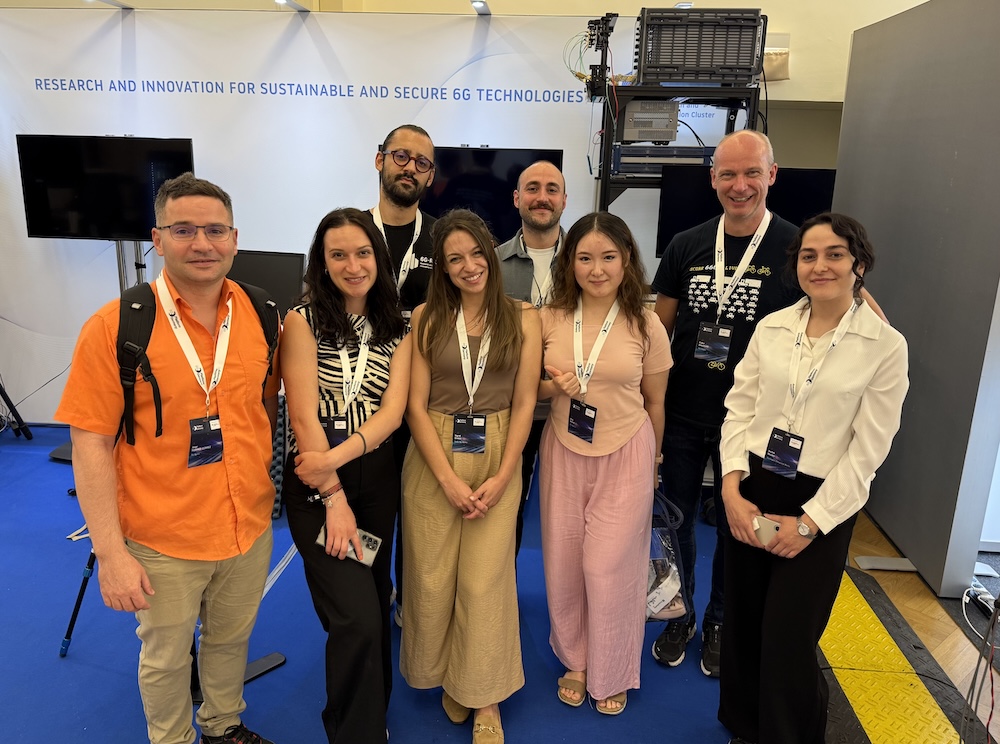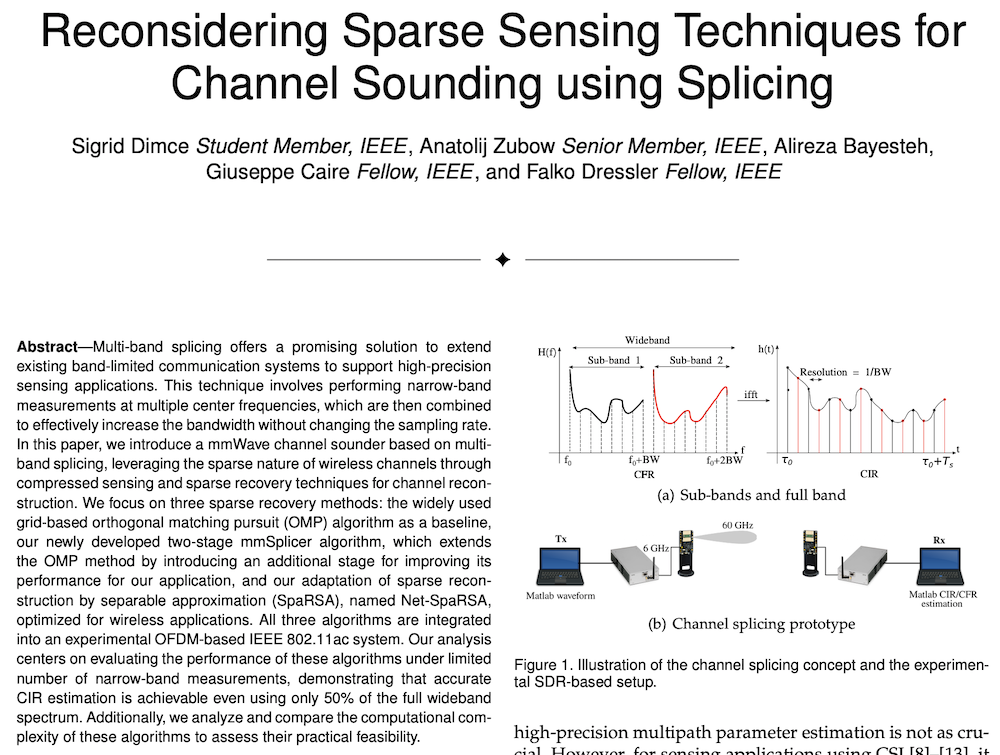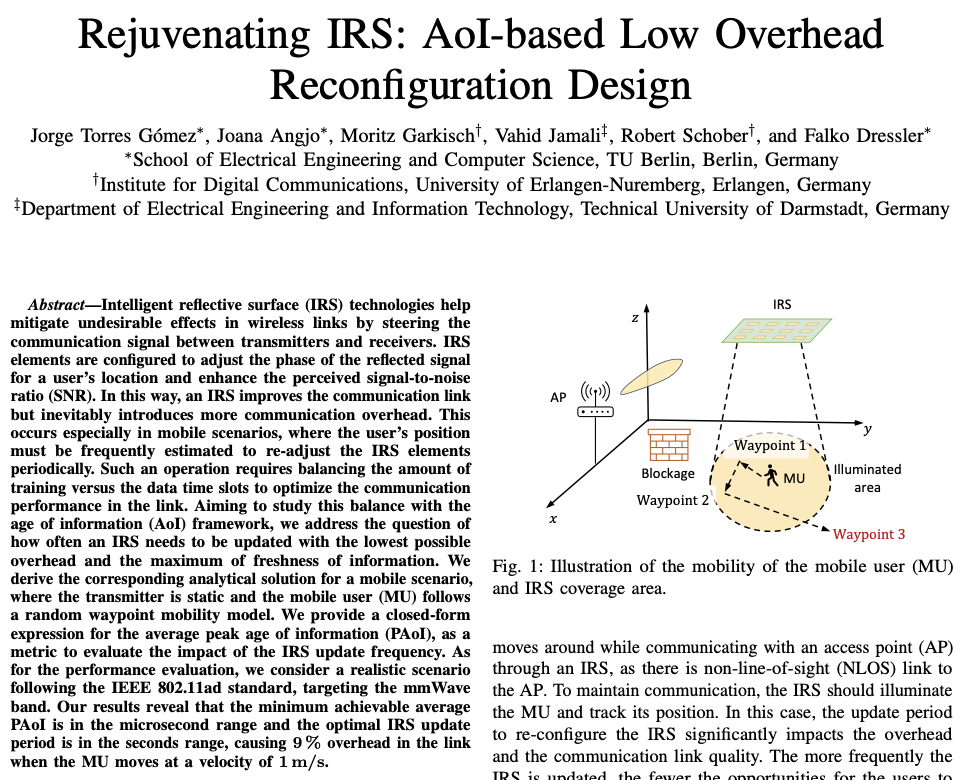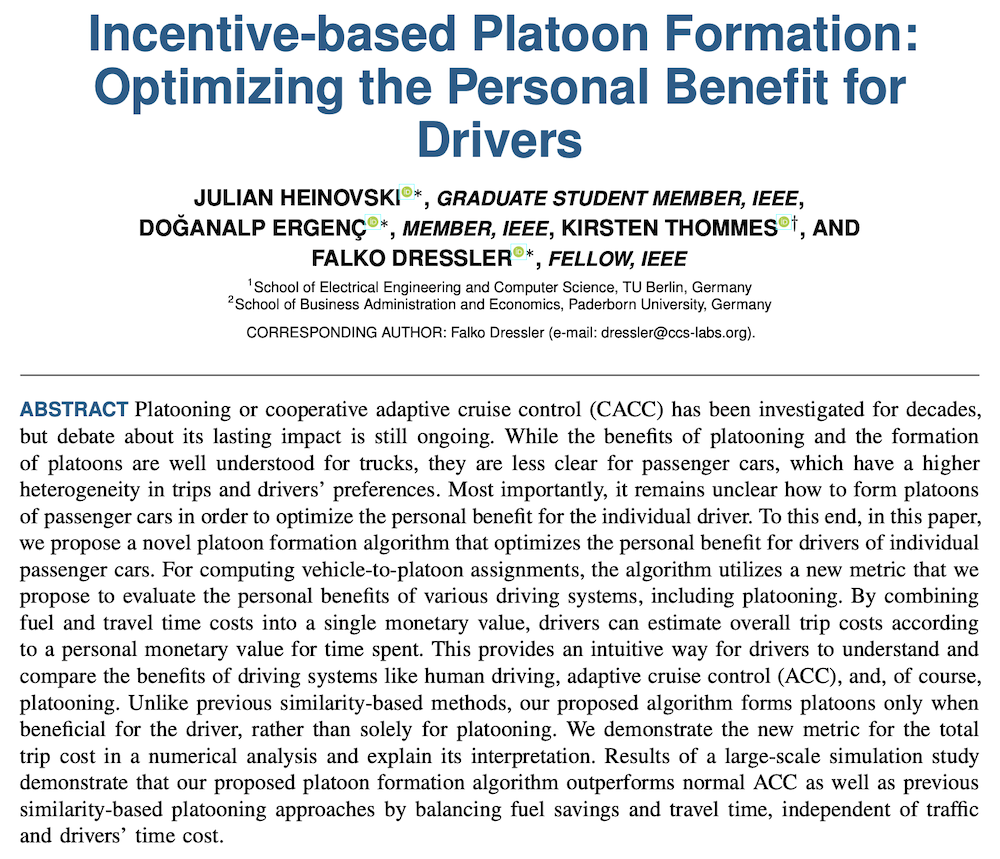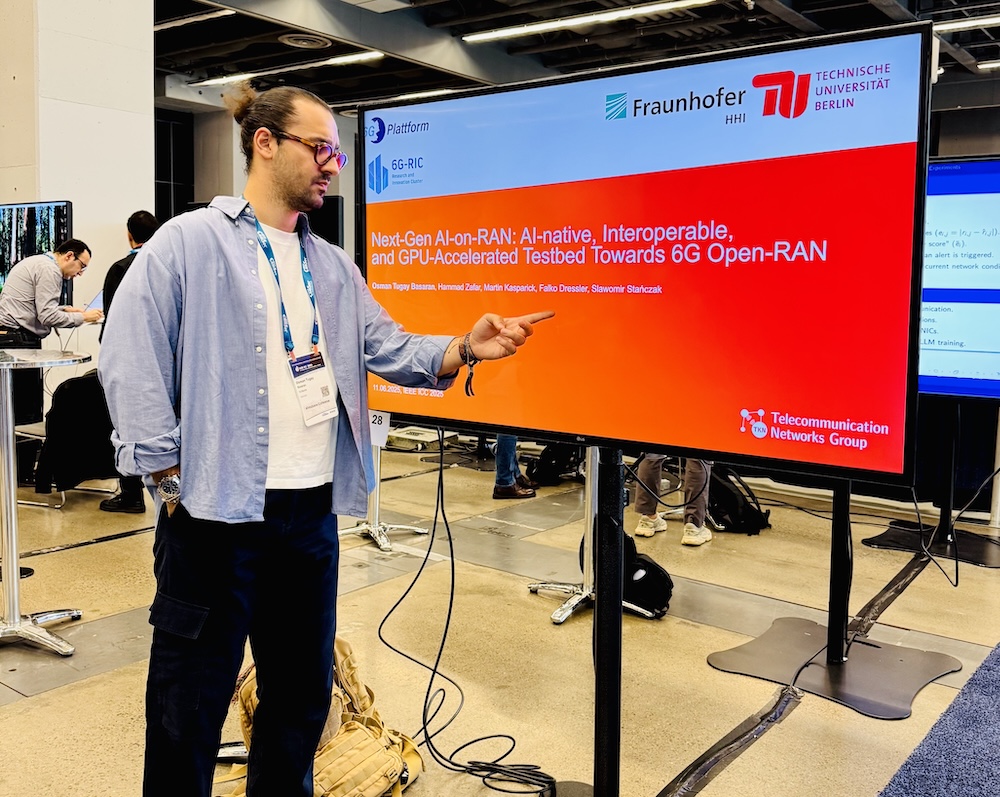Literature Database Entry
sommer2010simulation
Christoph Sommer, Isabel Dietrich and Falko Dressler, "Simulation of Ad Hoc Routing Protocols using OMNeT++: A Case Study for the DYMO Protocol," ACM/Springer Mobile Networks and Applications, Special Issue on Development Tools and Techniques for Mobile Telecommunications, vol. 15 (6), pp. 786–801, December 2010.
Abstract
Mobile Ad Hoc Networks (MANETs) have evolved in the last years into standards in the communication world. By definition, they do not need any network infrastructure to facilitate communication between participating nodes. Therefore, MANETs are dealing with new challenges in the context of ad hoc routing. Simulation techniques are one of the fundamental methodologies to support the protocol engineering process, especially in the early stages of ad hoc network protocol design. In this paper, we set out common criteria that may serve as guidelines for meaningful simulative evaluations of ad hoc routing protocols. We present typical and necessary measures for ad hoc routing in general and MANET routing in particular. As a case study, we demonstrate a comprehensive performance evaluation of the Dynamic MANET On Demand (DYMO) routing protocol using a model we implemented for the popular OMNeT++ discrete event simulation environment.
Quick access
Original Version ![]() (at publishers web site)
(at publishers web site)
Authors' Version ![]() (PDF on this web site)
(PDF on this web site)
BibTeX ![]()
Contact
Christoph Sommer
Isabel Dietrich
Falko Dressler
BibTeX reference
@article{sommer2010simulation,
author = {Sommer, Christoph and Dietrich, Isabel and Dressler, Falko},
doi = {10.1007/s11036-009-0174-5},
title = {{Simulation of Ad Hoc Routing Protocols using OMNeT++: A Case Study for the DYMO Protocol}},
pages = {786--801},
journal = {ACM/Springer Mobile Networks and Applications, Special Issue on Development Tools and Techniques for Mobile Telecommunications},
issn = {1383-469X},
publisher = {Springer},
month = {12},
number = {6},
volume = {15},
year = {2010},
}
Copyright notice
Links to final or draft versions of papers are presented here to ensure timely dissemination of scholarly and technical work. Copyright and all rights therein are retained by authors or by other copyright holders. All persons copying this information are expected to adhere to the terms and constraints invoked by each author's copyright. In most cases, these works may not be reposted or distributed for commercial purposes without the explicit permission of the copyright holder.
The following applies to all papers listed above that have IEEE copyrights: Personal use of this material is permitted. However, permission to reprint/republish this material for advertising or promotional purposes or for creating new collective works for resale or redistribution to servers or lists, or to reuse any copyrighted component of this work in other works must be obtained from the IEEE.
The following applies to all papers listed above that are in submission to IEEE conference/workshop proceedings or journals: This work has been submitted to the IEEE for possible publication. Copyright may be transferred without notice, after which this version may no longer be accessible.
The following applies to all papers listed above that have ACM copyrights: ACM COPYRIGHT NOTICE. Permission to make digital or hard copies of part or all of this work for personal or classroom use is granted without fee provided that copies are not made or distributed for profit or commercial advantage and that copies bear this notice and the full citation on the first page. Copyrights for components of this work owned by others than ACM must be honored. Abstracting with credit is permitted. To copy otherwise, to republish, to post on servers, or to redistribute to lists, requires prior specific permission and/or a fee. Request permissions from Publications Dept., ACM, Inc., fax +1 (212) 869-0481, or permissions@acm.org.
The following applies to all SpringerLink papers listed above that have Springer Science+Business Media copyrights: The original publication is available at www.springerlink.com.
This page was automatically generated using BibDB and bib2web.

